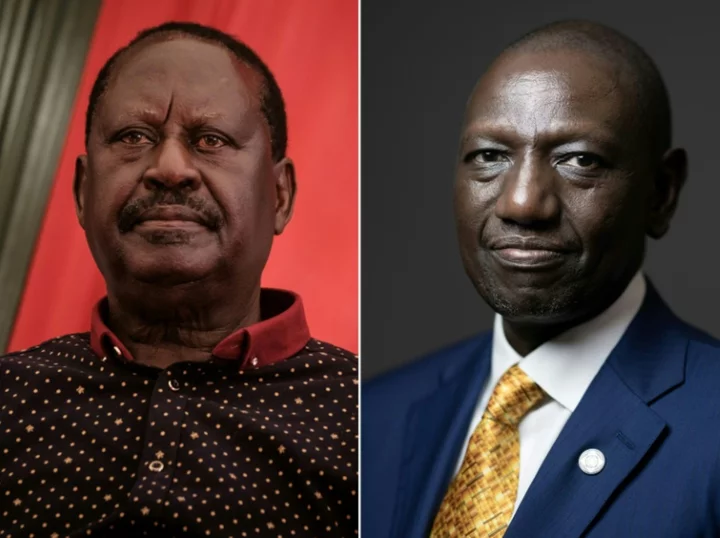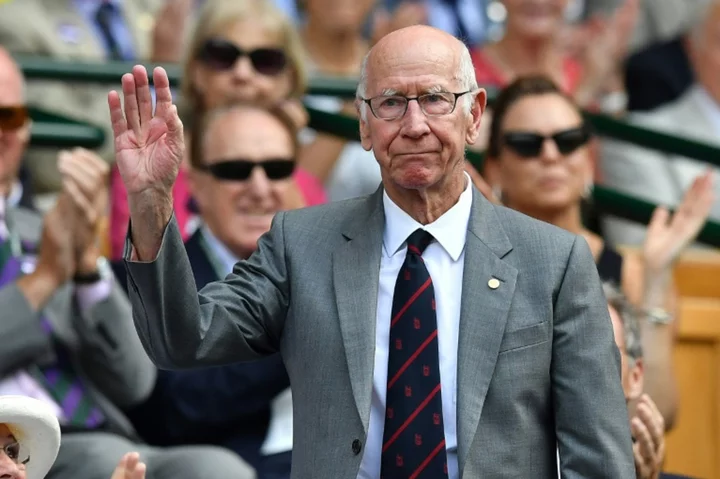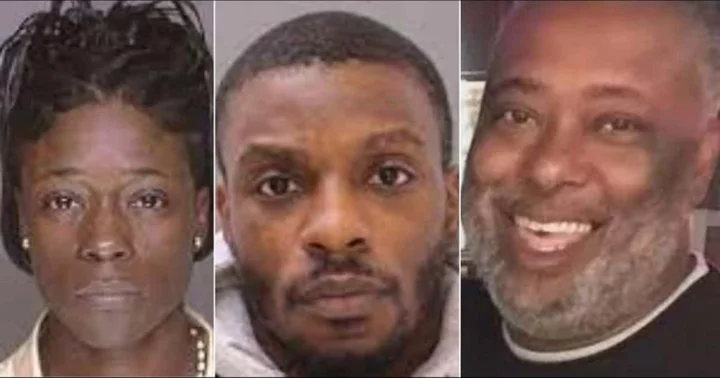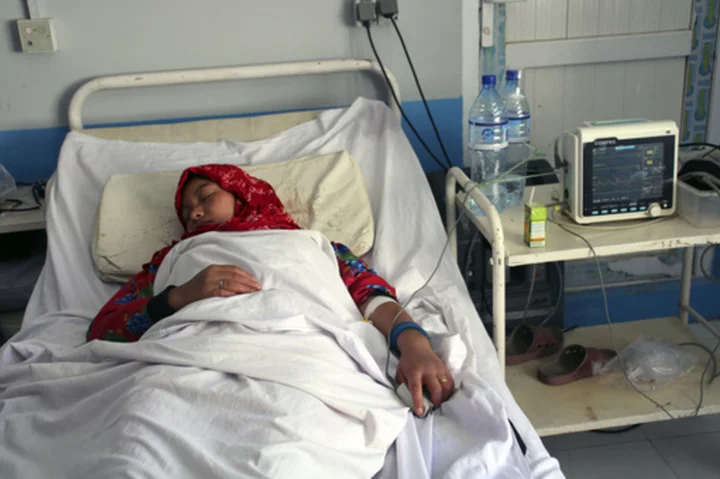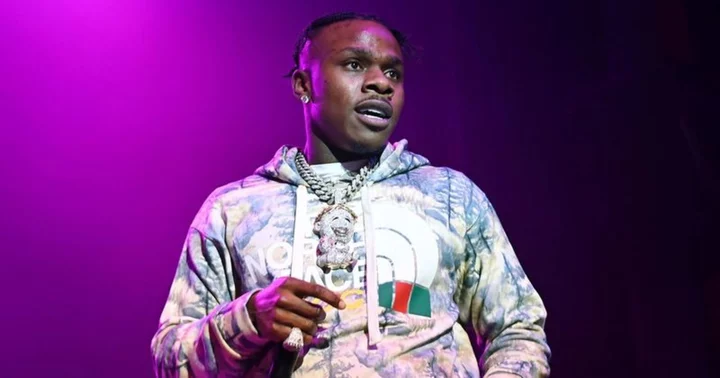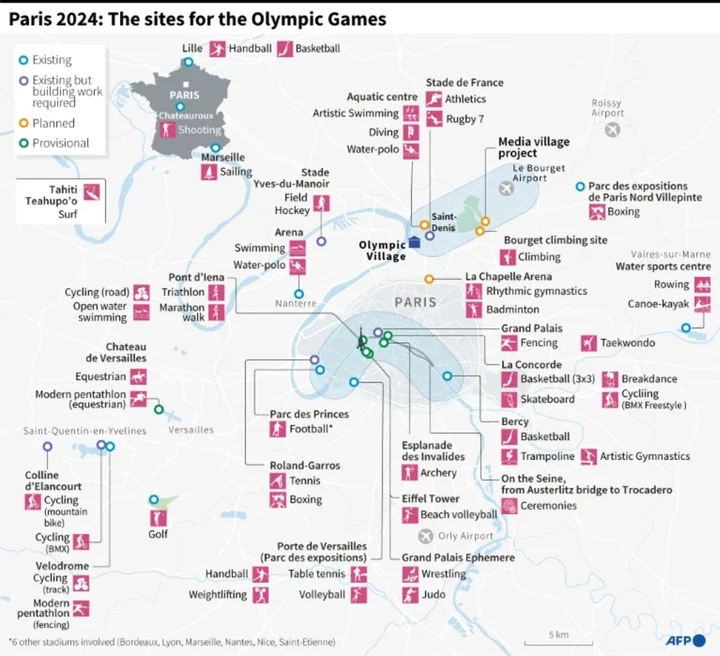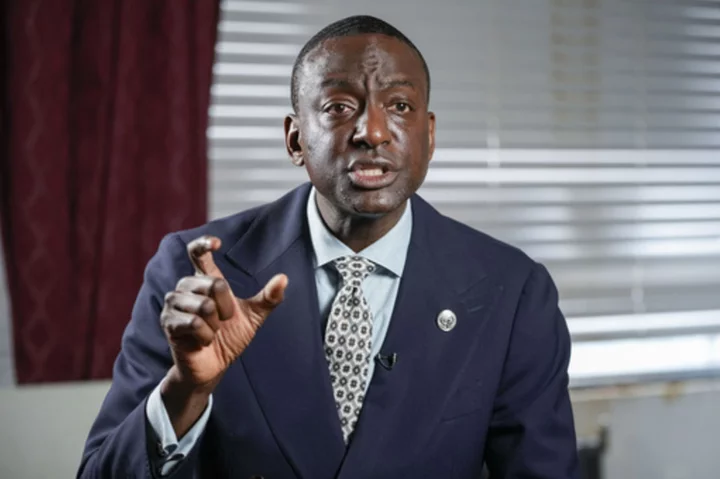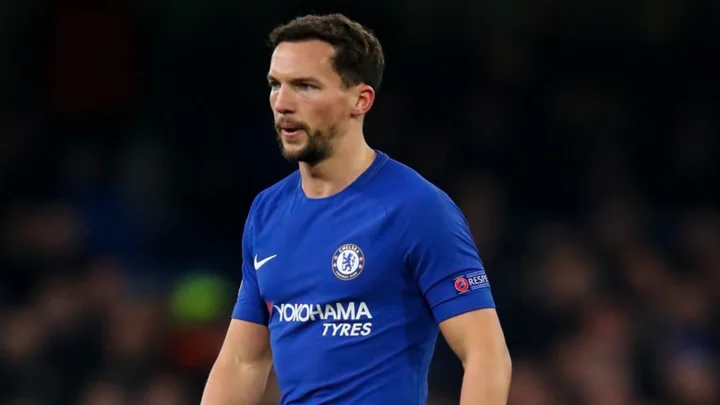Opposition leader Raila Odinga told AFP Wednesday that he would not hold talks with President William Ruto without a third-party mediator after months of anti-government protests.
Since Odinga urged Kenyans to take to the streets in March, his Azimio alliance has held nine days of protests against the government, with the demonstrations sometimes spiralling into looting and deadly clashes with police.
The unrest has sparked alarm among Kenyans and the international community, which has urged the two sides to negotiate an end to the crisis.
Late Tuesday, Ruto expressed his willingness to meet Odinga in a social media post addressing the opposition leader.
"As you have always known, am available to meet one on one with you anytime at your convenience," Ruto posted on Twitter, which is being rebranded as 'X'.
But Odinga told AFP on Wednesday that he would not meet Ruto unless a third-party mediator was present.
"He is not somebody you can trust, he keeps changing words that is why I insist they must be a mediator between us," he said.
"I am ready to talk if there is a mediator between us."
Ruto has never publicly discussed the possibility of third-party mediation.
Odinga called off demonstrations in April and May after Ruto agreed to dialogue, but the talks broke down, with several demonstrations held this month.
The veteran politician spoke to AFP after visiting two hospitals in Nairobi to meet injured protesters.
Accompanied by around two dozen opposition leaders and at least a hundred supporters, he later paid tribute to slain protesters, lighting candles and offering white roses "to the memory of the departed."
Similar candlelight vigils were held by small groups in Nairobi's Mathare neighbourhood and the opposition bastions of Kisii, Kisumu and Migori in response to Odinga's call, TV broadcasts showed.
The violence has sparked outrage among rights groups, with campaigners condemning the police for firing tear gas and live rounds to disperse stone-throwing protesters.
Twenty people have been killed, according to official figures, although Azimio puts the toll at 50.
- 'Sit and talk' -
Several Kenyans told AFP they were fed up with the disruptions.
"I have not been coming to work every time there are protests because I fear being attacked on the road and being stolen from," receptionist Cate Wafula, 29, told AFP, urging the two sides to make "peace".
Motorcycle taxi driver Josphat Ng'atho, 36, echoed her views, saying: "Let them sit and talk."
"If they don't, the stalemate will never end and our suffering will continue forever."
Odinga, who says last year's presidential election was "stolen" from him, has blamed the government for a cost-of-living crisis and of "unprecedented police brutality" against protesters.
More than two dozen rights groups including Amnesty International last week said they had evidence of 27 "extrajudicial, summary and arbitrary executions" in July alone.
The interior ministry on Tuesday said allegations of "extrajudicial executions and/or excessive use of force... are malicious, false and intended to distort public opinion".
Ruto has repeatedly called for a halt to the protests and vowed to clamp down on any sign of "anarchy".
Critics accuse Ruto of rowing back on promises made during his election campaign last year, when he pledged to improve the fortunes of impoverished Kenyans.
The rags-to-riches businessman imposed hefty new taxes this year, further adding to the economic misery endured by ordinary Kenyans.
As the demonstrations have dragged on, appetite for the protests has flagged, with Kenyans largely ignoring last week's call for three consecutive days of rallies.
Opposition protests following Odinga's election loss in 2017 continued until he brokered a surprise pact with his erstwhile foe, former president Uhuru Kenyatta, that became known as "the handshake".
ho-amu/ri

